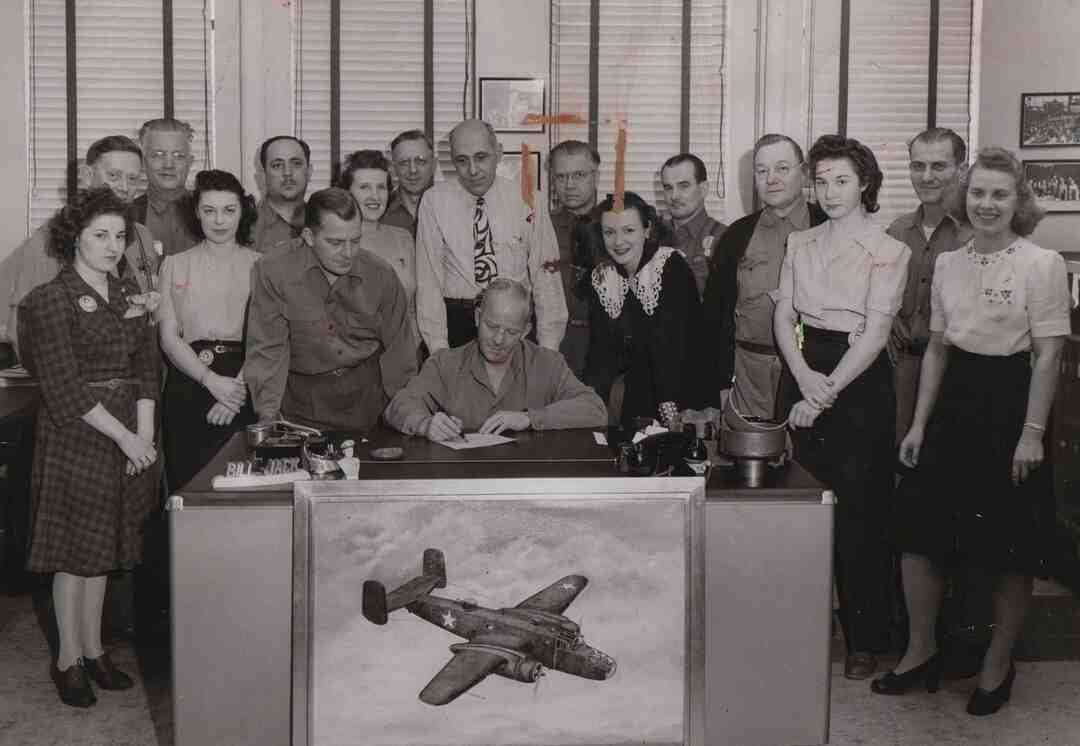Jack & Heintz Co.

Bill Jack and Ralph Heintz formed Jack & Heintz in 1940 in Palo Alto, California. They soon moved their company to the Cleveland area, building a small plant at 17600 Broadway Avenue in Maple Heights. The company made airplane parts, and it soon received a military contract to produce airplane starters. After their initial work orders were fulfilled on time and at a lower cost than other contractors, Jack and Heintz soon received more military contracts, including a significant one for the production of autopilot devices.
By 1944, Jack and Heintz employed over 8700 workers (including several thousand women) at their expanded Maple Heights location and several other new plants around the area. This number is staggering when one considers that at its inception in 1940 the company only employed about 50 people.
While its name may have been Jack & Heintz, it was Bill Jack who became the charismatic public face of the company. Before founding Jack & Heintz , Jack had been a machinist, then became a leader in the machinist's union, and eventually opened his own plant, making him a wealthy man.
Jack believed that a company should take good care of its employees -- or "associates," as he preferred to call them. Everyone -- even Jack himself -- was called by their first name, and the titles "sir" and "mister" were strictly forbidden. More significantly, workers at JAH-CO (as the company was popularly known) received free health care, paid sick leave, free meals, access to a sauna and massages, frequent cash bonuses, and two weeks of paid vacation at no-cost company resorts. Smoking on the job was permitted, as was the hanging up of pin-up girls. Workers even received complimentary donuts, coffee (in a personal mug embossed with their name!), and vitamins. The company had a music collection totaling nearly 5000 records, which it played from during working hours. In return, associates agreed to work 12-hour shifts, 7 days a week with only one day off a month. Despite these long hours, worker morale was high and absenteeism remained well below the national average. In terms of the speed and efficiency at which the company fulfilled its military contracts, the working conditions at the plant were deemed to be wildly successful. Eventually, the company's unique treatment of its employees received national publicity, and Jack savored the spotlight. Workers seemed to support Jack, as well -- literally singing his praises in the "JAH-CO Victory Song"
JAH-CO -- On to VIC-TO-RY!
Working ev'ry hour for our LI-BER-TY!
JAH-CO -- That means you and me!
Ev'ry one must fight for VIC-TO-RY!
"Bill" and "Ralph," You've stood by us,
We're all in back of YOU
Anything you care to ask,
We're waiting here to do.
When the war ended, however, the lucrative military contracts that allowed JAH-CO to take such good care of its workers came to an end as well. In 1946, the company merged with Precision Products. Both Jack and Heintz sold all their stock after the acquisition, making millions but giving up their voting control in the new company. While Precision Products vowed to make no changes to JAH-CO's unique personnel practices, little by little the new owners of Jack & Heintz scaled back Jack's way of doing things.
Video
Images







